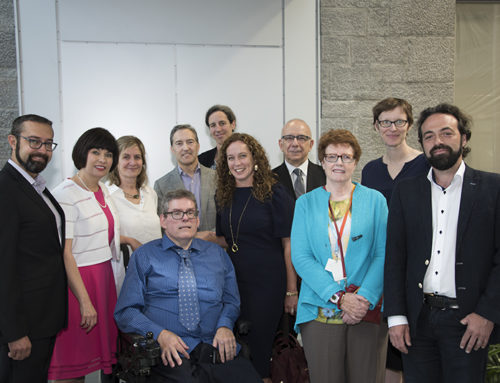Let’s call him William. He is an energetic and wicked 59-year old. He’s been living with HIV for twenty-five years. With the right treatment, he’s been able to live a healthy life. However, a few years ago, he started experiencing difficulties with his concentration and memory. Now William finds that he sometimes forgets phone numbers, doctor’s appointments and names of people he has just met, or even to take his daily medication, He wonders if this is just due to age, or whether the HIV has anything to do with this. More importantly, he wonders what he can do to improve the situation.
People like William are amongst the participants of the Positive Brain Health Now study developed by a group of researchers from McGill University (Montréal, Québec) with collaborators from other parts of Canada and Australia. These investigators are interested in better detecting and understanding changes in cognitive function, and finding ways to improve brain health in people living with HIV.
What is “cognitive function” and what does it have to do with HIV infection? Cognitive function is a person’s ability to think, to understand, to plan; it includes specific processes such as memory, concentration, problem-solving and the ability to learn new information. When any of these processes is impaired, there is cognitive decline.
Long term HIV infection may affect cognitive function over time, resulting in issues like memory difficulties or decreased ability to solve problems. In fact, research shows that even with good control of the HIV infection, 30-50% of people living with HIV may have more cognitive difficulties than would be expected given their age. Do these difficulties result from HIV-induced brain injury? Accelerating aging? Toxic effects of medications? Or the stress of living with a serious chronic illness? The answer may be “all of the above”.
The Positive Brain Health Now multidisciplinary team composed of HIV physicians, psychiatrists, neurologists, neuropsychologists and epidemiologists proposes that poor brain health in HIV is due to multiple factors. The team aims to characterize these in a representative sample of 900 people with HIV drawn from 4 clinics in Canada (McGill University Health Centre, Clinique Médicale l’Actuel in Montreal, Special Immunology Clinic in Hamilton and St-Paul’s Hospital in Vancouver).
The Positive Brain Health Now team is focused on developing tools that can be applied in the clinic setting to ensure that the time and effort invested by research participants will benefit the HIV community at large in the very near future. Measurement of cognition remains a major stumbling block to effective management of this condition. To address this unmet need, the researchers have developed a brief computerized test (B-CAM, for Brief Cognitive Ability Measure) that applies cutting-edge statistical methods to assess cognition over time. Once optimized as a result of the study, this web-based open-access (meaning, free!) tool could be used in the clinic setting to measure cognitive abilities in a few minutes.
Another focus of the research team is to develop interventions aimed at improving cognition, especially those that have the potential to be easily applied. To that end, sub-groups will participate in specific interventions that will measure the cognitive impact of structured physical exercise, computerized brain health self management and computer cognitive training.
In a related study, we want to hear about the kinds of brain health difficulties that people with HIV are experiencing, so we can develop better questionnaires to detect them. Participation is open to all individuals living with HIV. We want to hear your voice! If you want to contribute to the development of better ways to detect cognitive changes in the clinic setting, we invite you to take about 10-15 minutes and complete an on-line survey. Please visit the following link: http://goo.gl/B717U. **
This study is supported by the Canadian Institutes of Health Research and the CIHR Canadian HIV Trials Network. Please visit our website for more information: www.brainhealthnow.mcgill.ca or follow-us on twitter @pozBHN.
We want to thank the Positive Brain Health Now participants who commit their time to this important project that will help their community.
**This survey is completely anonymous. The record kept of your survey responses does not contain any identifying information about you unless a specific question in the survey has asked for this. If you have responded to a survey that used an identifying token to allow you to access the survey, you can rest assured that the identifying token is not kept with your responses. It is managed in a separate database, and will only be updated to indicate that you have (or haven’t) completed this survey. There is no way of matching identification tokens with survey responses in this survey.



